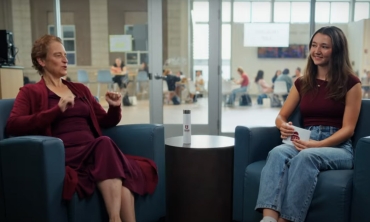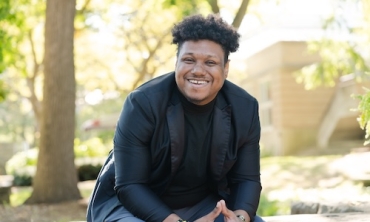Mark Dallas, associate professor of political science and director of Asian Studies, participated as an expert witness in a congressional hearing of the U.S.-China Economic and Security Review Commission.
The commission is the U.S. government’s leading advisory panel on China policy. The hearing focused on U.S.-China competition in global supply chains.
Dallas was part of a panel of academic experts who offered testimony on China’s position on global supply chains. Representatives from the Johns Hopkins University School of Advanced International Studies and Harvard Business School joined him. Three other panels of experts representing government and industry also testified during the all-day hearing.
Dallas was recommended to the commission because of his research on the intersection of China and global value chains in high-tech sectors, including 5G telecommunications and semiconductors, Chinese industrial and technology policies, and U.S.-China economic coercion.
The U.S. government is concerned about dependency on Chinese manufacturing and raw material exports like rare earths and other critical minerals, particularly those with a military application, according to Dallas. They are also interested in emerging and foundational technologies in which China is attempting to leap frog ahead on the technological cutting edge.
In advance of the hearing, Dallas submitted written testimony based in part on a series of questions provided by the commission. During the hearing, Dallas and the other experts were allowed seven minutes for opening remarks before facing questions from commissioners.
“The questions were probing and sometimes critical of what we wrote in our written testimony,” Dallas said. “I would characterize the commission as hawkish on China in general, some more so than others. I explicitly tried to undercut the hawk-dove dichotomy in my testimony as detrimental to U.S. policy-making.”
Dallas said commissioners were critical of the academic panel partly because its views on China and U.S. government policy towards China departed from the basic political line of the commission and Congress.
“Academics are freer to express what we believe compared to government representatives, who must have their remarks vetted by their government agencies and can only cite government research,” Dallas said. “Industry representatives’ remarks could always be interpreted as being driven by the profit motive.”
To read Dallas’s written testimony or to view video of the hearing, visit the commission’s website.
The hearing attracted international media attention, including this article in the South China Morning Post.
Being selected to present testimony to the commission is the latest honor for Dallas, who joined Union in 2010. He is spending the year in Washington, D.C. on a Council on Foreign Affairs International Affairs fellowship. Through the fellowship, he is working at the World Bank. Once he passes a security clearance, he will work in the Department of Commerce in the Bureau of Industry and Security, Export Administration, and with the Cyber Infrastructure Agency in the Department of Homeland Security.
To learn more about Dallas’s research, visit his website.





